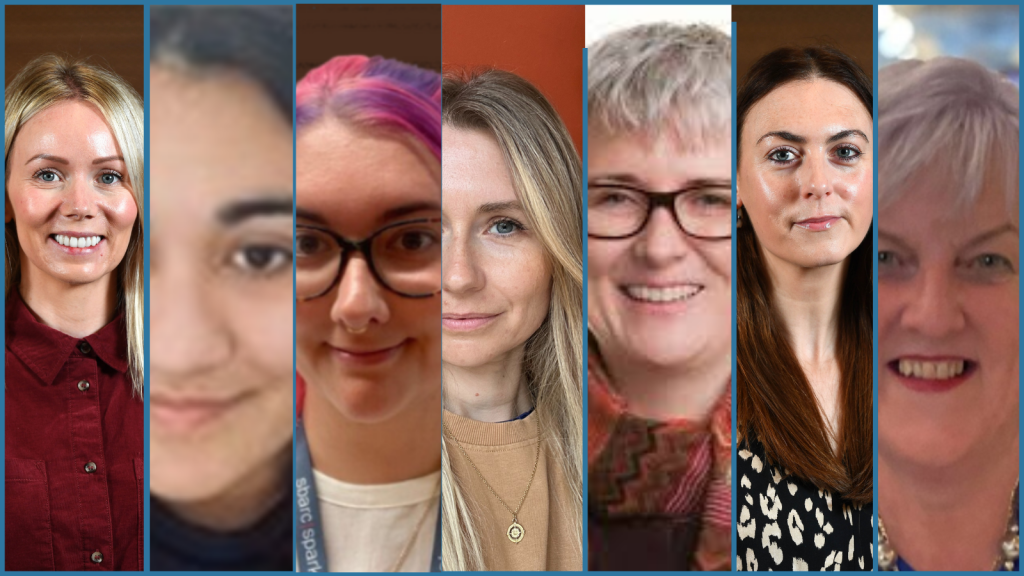
The RISE Study is firmly underway, looking at the provision, uptake and consumption of school meals. In the first of a two-part blog, we introduce the team behind the study.
Reducing Inequalities in School Food Environments (RISE): Supporting provision, uptake and consumption of Free School Meals in primary schools is a three-year, £1.6m study funded by UK Research and Innovation (UKRI). It is carried out in partnership with Public Health Wales, LACA – the School Food People, Newcastle University, Queen’s University Belfast and Glasgow Caledonian University, with advice from the Children’s Commissioner for Wales. In this blog series, we meet the RISE team members spanning these organisations.
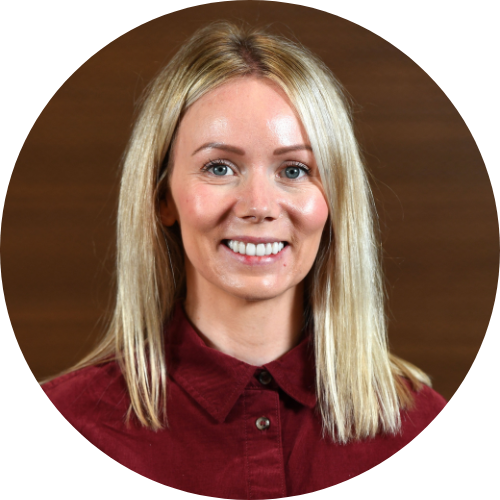
‘Malnutrition is a huge predictor of health outcomes throughout the life course.’
Dr Sara Long, RISE Principal Investigator, Research Fellow, DECIPHer, Research and Evaluation Lead, Public Health Wales.
Describe your background and previous experience.
I hold a PhD in psychology and nutrition and I have recently led studies on major policy evaluations and health outcomes.
What is your role in RISE?
I am Principal Investigator and have overall oversight of the research. Whilst I am involved in all aspects of the research, I am Work Package Lead on two of four work packages.
Why do you think RISE is important?
Malnutrition is a huge predictor of health outcomes throughout the life course. RISE is important because it is essentially an implementation evaluation of a hugely important policy initiative that has implications for the health of populations and sustainability agendas globally.
What are your hopes for RISE?
I hope that our work supports the best possible school meals for the young people of Wales. I hope we are able to influence the provision, uptake and consumption of healthy and sustainable school food. Finally, I hope our work has positive impacts on the health and sustainability of school meals nationally and internationally.

‘RISE offers a unique opportunity to better understand the dietary patterns of primary school-aged children.’
Dr Rochelle Embling, Senior Public Health Research & Evaluation Officer, Public Health Wales.
Describe your background and previous experience.
I am a Senior Research and Evaluation Officer at Public Health Wales. I have a background in Psychology, mixed-methods and experimental research, having previously worked on projects with a broad focus on health improvement and sustainability, and specific interests in eating behaviour, consumer acceptance, and obesity.
What is your role in RISE?
My main role involves leading Work Package 2, which is all about collecting data in schools. This includes taking photographs of meals at lunchtime in school dining halls, and interviewing school staff, learners and their parents about school food. I also support the other work packages as a researcher on the project, and help develop our governance plans to make sure that what we’re doing is in line with University and partner organisation policies (e.g., for ethics and data protection).
Why do you think RISE is important?
RISE offers a unique opportunity to better understand the dietary patterns of primary school-aged children, helping us to shape the future of school food in ways that reduce health inequalities and promote positive health and wellbeing among all children across Wales.
What are your hopes for RISE?
As the RISE project develops, I hope to see this research make a real difference to policy and practice, by working closely with a range of stakeholders to deliver impact: from local supply and provision to school dining halls and the family home.

‘RISE has the potential to influence policy and practice to positively impact the health of children.’
Sarah Collins, RISE Research
Co-Ordinator.
Describe your background and previous experience.
Prior to joining the RISE team, I was an administrative assistant at DECIPHer providing research project support and public involvement support. I hold an MSc in Experimental Psychology and have an interest in research involving children and families.
What is your role in RISE?
As Research Co-ordinator, it’s my role to handle administrative and logistical tasks to ensure the team can deliver and the project runs smoothly,
Why do you think RISE is important?
Proper nutrition is important in childhood and provides a foundation for future health. RISE is an opportunity to learn about children’s nutrition in school and it has the potential to influence policy and practice to positively impact the health of children.
What are your hopes for RISE?
As a project team, I hope we have a positive impact on the policy and practice around meal offerings to children in schools to give them the best chance of avoiding malnutrition. Personally, I see this as an opportunity to learn more about the research process and progress my career in this research area.
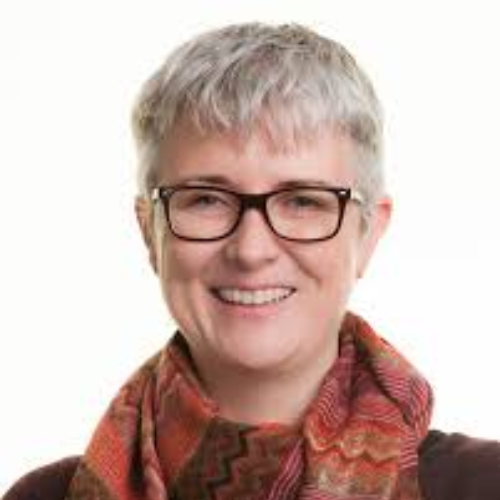
‘Schools provide an important setting for public health interventions.’
Professor Jayne Woodside, Professor of Human Nutrition and Director, Centre for Public Health, School of Medicine, Dentistry and Biomedical Sciences, Queen’s University Belfast.
Describe your background and previous experience.
My background is in Human Nutrition and Public Health and I have recently been involved in a range of studies studying school food systems and developing research priorities. I lead the GENIUS school food research network.
What is your role in RISE?
I am based in Northern Ireland and am leading the contribution to the study from that country, as well as being involved in the other work packages.
Why do you think RISE is important?
Schools provide an important setting for public health interventions that can reduce inequalities and Free School Meals are a major part of national policy.
What are your hopes for RISE?
I hope RISE will drive increased understanding of school meal systems and how free schools meals can effectively improve diet quality in our children.
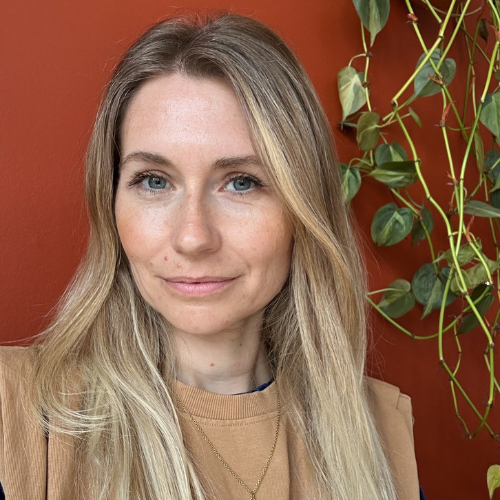
‘The research will fill important gaps in knowledge about school food provision, uptake and consumption.’
Lucy Jayne, Senior Public Health Nutritionist, Public Health Wales.
Describe your background and previous experience.
I am an AfN Registered Nutritionist with a degree in Nutrition, a master’s in Public Health, and experience in national and local public health policy and initiatives.
What is your role in RISE?
I am a nutrition specialist co-lead for Work Package 2 and contribute nutrition expertise for Work Package 3.
Why do you think RISE is important?
The research will fill important gaps in knowledge about school food provision, uptake and consumption, that could help to maximise the opportunities of school food to improve child health outcomes.
What are your hopes for RISE?
I hope that RISE positively contributes to our work aimed at improving population health and fosters continued collaboration among partners across the UK.
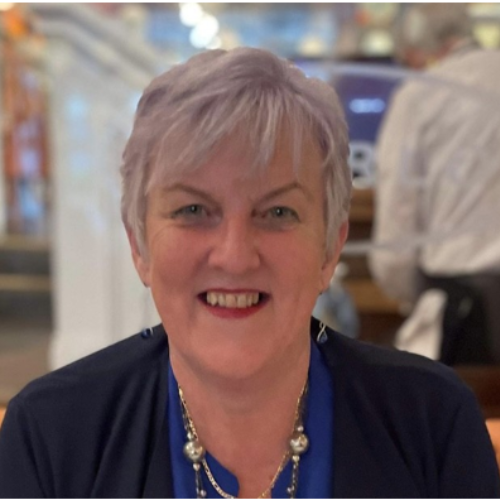
‘We need to ensure all children have access to healthy, nutritious meals.’
Sian Harding, Public Contributor
PPI member,Cardiff University.
Describe your background and previous experience.
I hold a 2:1 BEd (Hons) degree in Food Technology and spent 20 years teaching in a school within an area of multiple deprivation. Before the introduction of Universal Free School Meals, I was actively involved in improving access to free school meals and helping to remove the stigma associated with them.
What is your role in RISE?
My role in RISE is as a Public Contributor. I bring a lay-person’s perspective, informed by my experience as a former teacher but also as a grandparent of children who currently receive free school meals.
Why do you think RISE is important?
I believe RISE is important because we need to ensure all children have access to healthy, nutritious meals that not only meet national guidelines but are also enjoyable and acceptable to the pupils.
What are your hopes for RISE?
I hope this study will provide a real-time understanding of the provision and uptake of Universal Free School Meals. It will help ensure that the food provided is acceptable to pupils, while also exploring the culture and environment in which they eat.

‘We need more evidence about how best to implement free school meals in the UK.’
Dr Jemma Hawkins, Assistant Director & Lead for Stakeholder Engagement.
Describe your background and previous experience.
I have 17 years experience in health research, prior to that I worked as a mental health practitioner.
What is your role in RISE?
I am the co-lead for work package 4 and I am a member of the study management group
Why do you think RISE is important? Because we need more evidence about how best to implement free school meals in the UK, including young people’s food choices and how to encourage take-up of these meals by primary school children and their families.
What are your hopes for RISE?
I hope that the RISE study provides usable insights about how best to improve school meals for young people in Wales and beyond.
More information on the study, its work packages and collaborators can be found below:
Cardiff University article: School meals the focus of new UK-wide study
UKRI article: Projects spanning the UK to tackle food inequality unveiled

